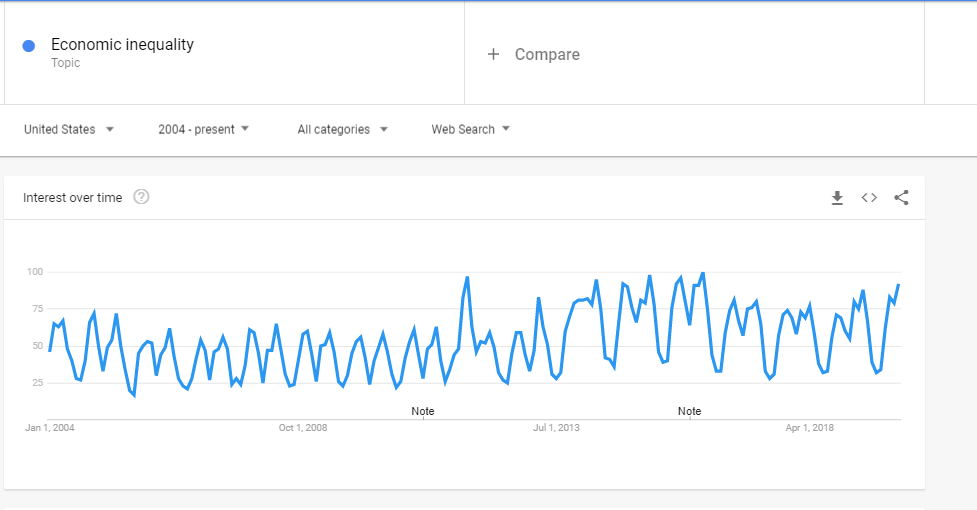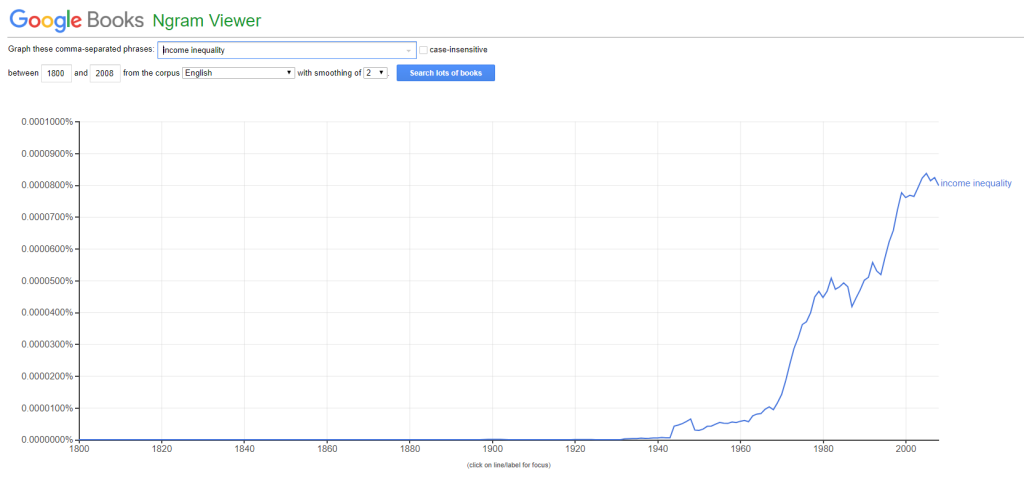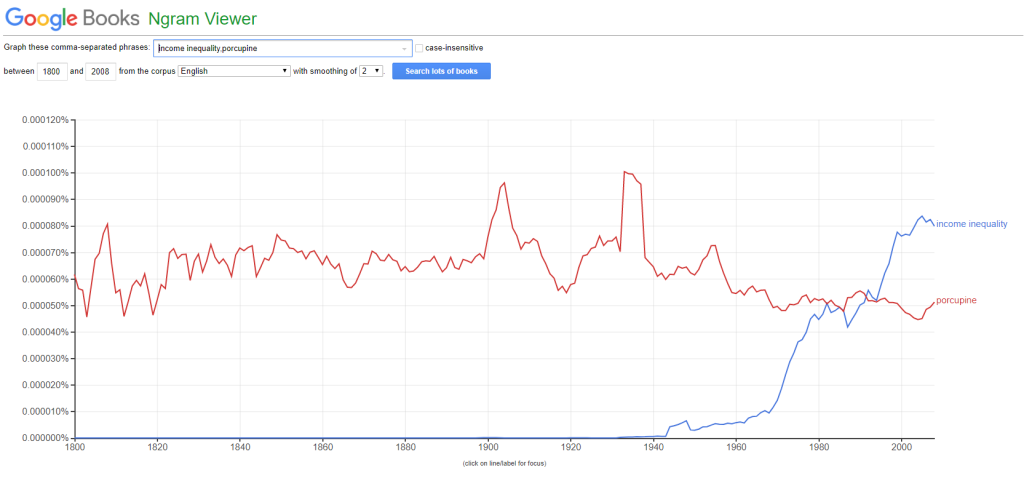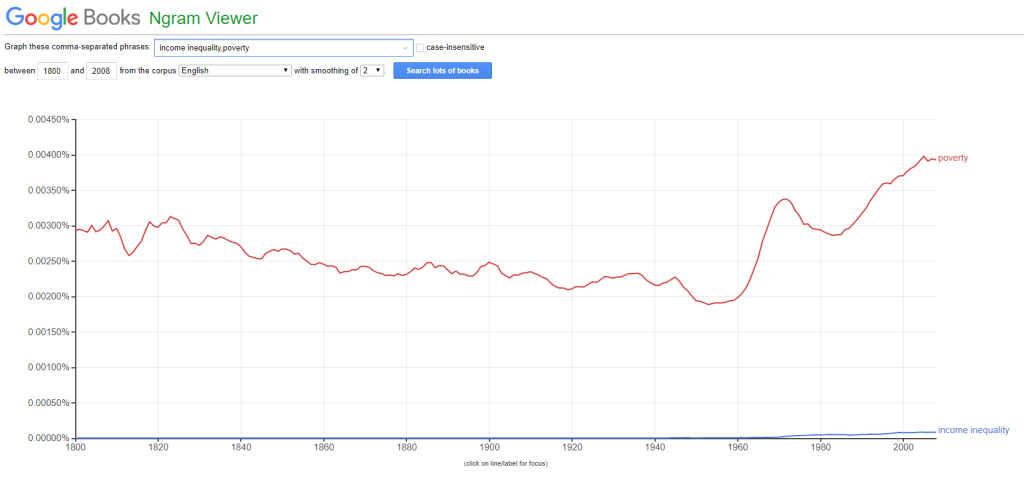The rage over income inequality has reached a fever pitch. The existence of billionaires has been described as a “policy failure” or a “policy mistake”, and that they should “not exist”, that we should “cancel billionaires” or “ban billionaires”. Some have proposed that there should be an absolute cap on the amount of wealth one can have, with the rest of the wealth being subsumed by the government. This inequality has been blamed for protests in the street. And, these concerns are what is behind much of the tax proposals put forth by the 2020 democratic presidential hopefuls. But, are concerns about income and wealth inequality new?
Much has been made about the trends in income and wealth inequality. Depend on who you ask, it is either skyrocketing, or, kind of flat and boring. But, what about the trend in talking about the trend in income inequality? Indeed, much more than the actual underlying construct, political change is driven by awareness of, and the attention focused on, a topic. For tax laws to change due to democratic pressure, it does not matter one bit if income inequality is actually going up, flat, or been trending down for decades—all that matters is what people think, and the narrative around the issue.
My favorite tool to get a sense for what people are thinking about, easily and quickly, is Google Trends. Google Trends captures what people search for on the internet. But, Google Trends only goes back to 2004, so, it is impossible to get a long-term trend. It seems that there has been a bit of an increase in income inequality searching, but not much, in Google Trends since 2004:

Even more interestingly, the Google Trends data, when parsed carefully, seem to indicate that people mostly search for information about income inequality during very specific times during the year.
How can we get at interest in the issue before 2004? Another tool, offered free by Google, is the ability to search Google Books for keywords, and see how prevalent words or phrases are in all the books Google has archived. There are certainly issues with this as a measure for interest in a subject, but, it is still an interesting tool. Here is what the volume of writing about income inequality in books has been since 1800. It was not really a thing until the 1940s, about when folks like Simon Kuznets were developing ways for thinking about such things. It has been increasing ever since.

How important is it? This tool does not really tell. It just tells us how frequently the phrase is written in books scanned by Google. What could we compare it to? How about porcupines? The red line represents references to porcupines on Google Books, and the blue line to income inequality.

For most of the history of the planet, porcupines played a larger literary role than income inequality. But, times are changing, and now income inequality has edged out discussion of the prickly subject of porcupines. How about a more relevant term? Martin Feldstein, among many, many others, was quick to note that we should not worry about income inequality per se, but about poverty. Helping poor people be better off was, to Feldstein, much more important than comparing how poor the poor are compared to the rich, without regards to their actual level of income. In his words, “I believe that inequality as such is not a problem and that it would be wrong to design policies to reduce it. What policy should address is not inequality but poverty.” We have been talking above poverty for a long time. But, according to Google Books searches, we have been talking (in books) about poverty even more than usual recently, and, that trend is increasing faster than how frequently we talk about income inequality. The red line represents references to poverty on Google Books, and the blue line to income inequality.

Martin would be proud.